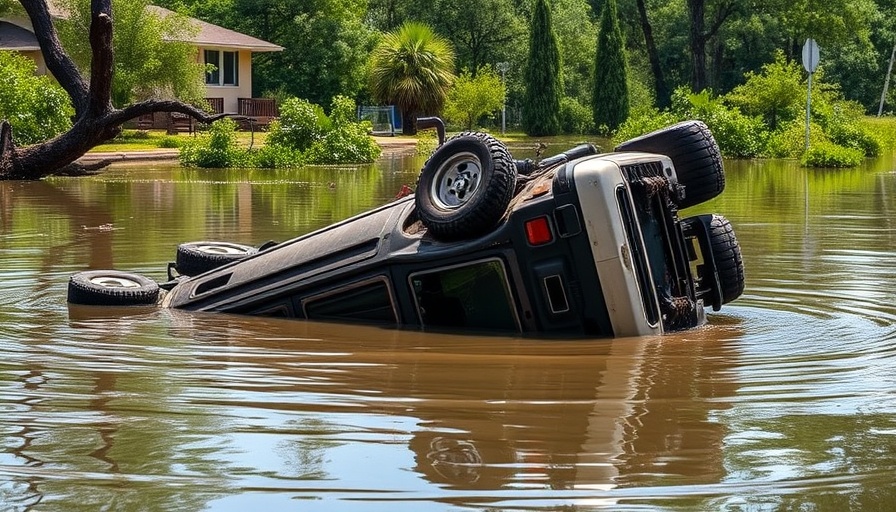
Texas Legislature Faces Flooding Aftermath: What to Expect
As Texas lawmakers gear up for a special session focused on the devastating July Fourth flooding, questions loom large regarding the effectiveness of state responses and future preparedness. The hearings, set for Wednesday at 9 a.m., will examine the state's flood response mechanisms and seek accountability from various officials involved in disaster management.
Understanding the Impact of the July Fourth Floods
The flooding that struck the Hill Country over the Fourth of July weekend caused significant damage, challenging local infrastructure and raising pressing questions about emergency preparedness. Residents experienced rapid evacuations, power outages, and extensive property damage. As the state responds, the hearings aim to unveil if past policies adequately addressed such disasters or if there's a pressing need for legislative reform.
The Role of the Special Committee: Can Change Happen?
The select committee formed by both the Texas House and Senate—named Disaster Preparedness and Flooding—will gather testimonies from various stakeholders, including emergency responders, city officials, and state agencies. Their findings will be pivotal in shaping future legislation that aims to prevent such catastrophic events. Observers are keenly watching if lawmakers can translate testimonies into actionable policies that could improve Texas's overall response to natural disasters.
Community Voices: Residents Demand Answers
Many citizens affected by this disaster are anxious to see how their representatives will address their concerns. Local leaders have been vocal about the need for improved infrastructure and emergency response systems. As flood recovery becomes a community effort, residents look toward these hearings as a crucial opportunity for their voices to be amplified, ensuring that their needs are met as policy changes unfold.
Future Trends in Flood Preparedness
The current crisis has shed light on broader trends related to climate resilience. With extreme weather becoming increasingly common, experts advocate for integrating climate science into state planning. Future initiatives may focus on enhancing drainage systems, revising zoning laws, and fostering community-based disaster preparedness programs to safeguard residents against future floods.
Call for Action: Take Part in the Conversation
The upcoming hearings represent a pivotal moment not just for Texas lawmakers but for everyone invested in the state’s future. Engaging in conversations about flood preparedness and recovery will empower communities, urging both authorities and citizens to take urgent action. Local governments must hear the demands for transparency and resilience—let your voice be heard during this transformative time.
Conclusion
The Texas Legislature's hearings on the July Fourth flooding disaster are set to spark critical conversations about how the state prepares for and responds to natural disasters. With communities eager for meaningful change, the outcome of these discussions could pave the way for better practices, facilitating a safer and more resilient Texas.
 Add Element
Add Element  Add Row
Add Row 



Write A Comment